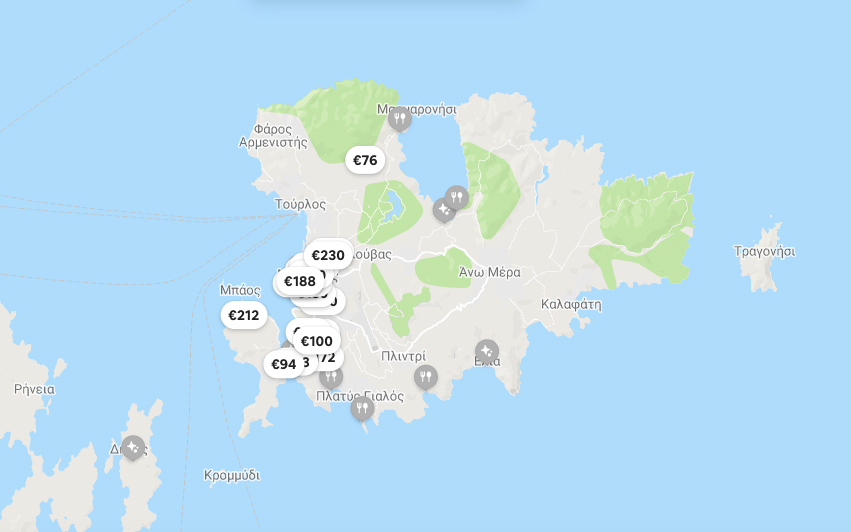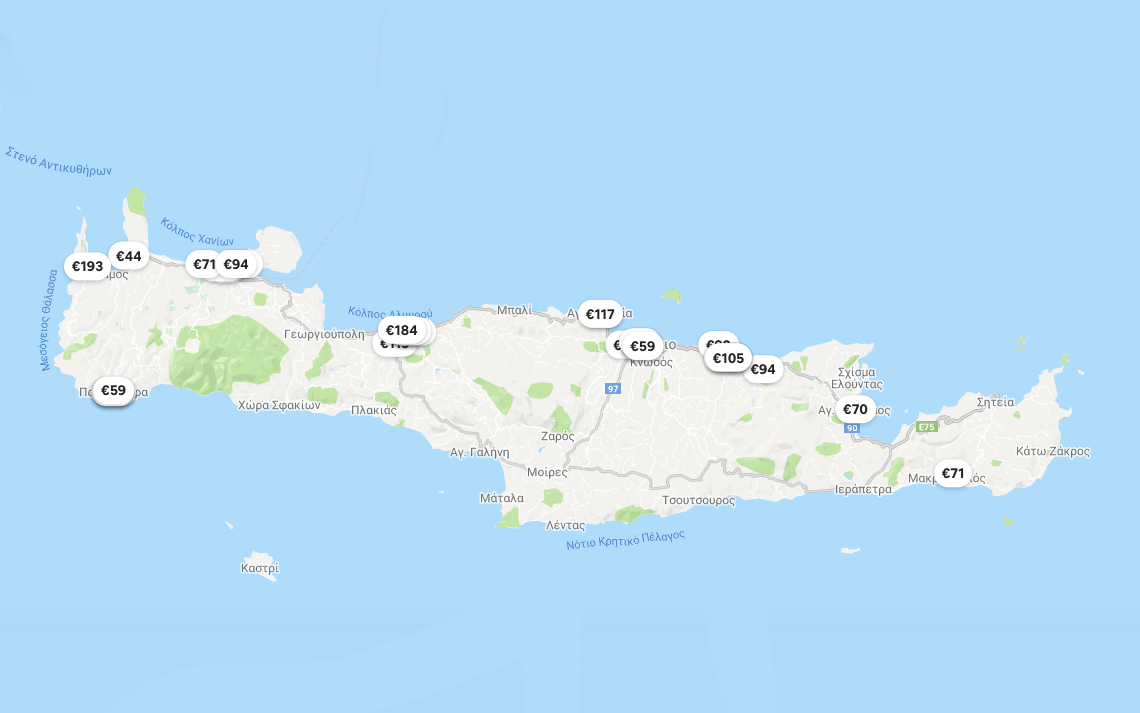Short-term property rentals, such as those offered by Airbnb, Booking.com and HomeAway, are on course for recovery from the pandemic and back up to 2019 levels, especially at popular tourism destinations like the Aegean island of Mykonos.
Data seen by newspaper Kathimerini reveal that Airbnb offerings on Mykonos have shown an occupancy increase by up to 111% this summer, compared to last year, while rates are also on the rise.
According to AirDNA, a company that analyzes short-term rental statistics, the occupancy rate at properties on offer on Mykonos for the first couple of weeks of August ranges between 58% and 69%, which is twice as high as the rate recorded a year earlier, amounting to no more than 34%.
The number of nights booked is also increasing, a figure that does not take into account the fluctuating number of properties on offer: There are some 9,000 overnight stays per week booked for the first half of August, which is 95% higher than a year earlier.

© Airbnb

© Airbnb
On Mykonos there currently are some 3,000-3,500 offerings on the main online platforms, which is almost the same as last year, but smaller than the 4,000 in 2019.
According to Nasos Gavalas, head of short-term property rental management company Mint and chairman of the Short-Term Accommodation Managers Association (STAMA), “the islands of the Cyclades, such as Mykonos and Paros, have been reporting excellent numbers since the start of the summer and it appears that this tourism season can be extended into the fall, barring a shock from the pandemic.”
Despite recent developments, Gavalas said referring to the surge in cases, the 10-day ban of music and the 01:00 curfew on Mykonos, “we have not had any cancelations above the normal levels seen every season.”
He also referred to Crete, where there has also been a spike in infections, saying that there has been a considerable increase in short-term rental bookings that is only accelerating as the summer hits its peak.
The occupancy rate for Greece’s biggest island is now at 70%-75% for August’s first half, primarily due to German and British demand.
This article was previously published at ekathimerini.com.












